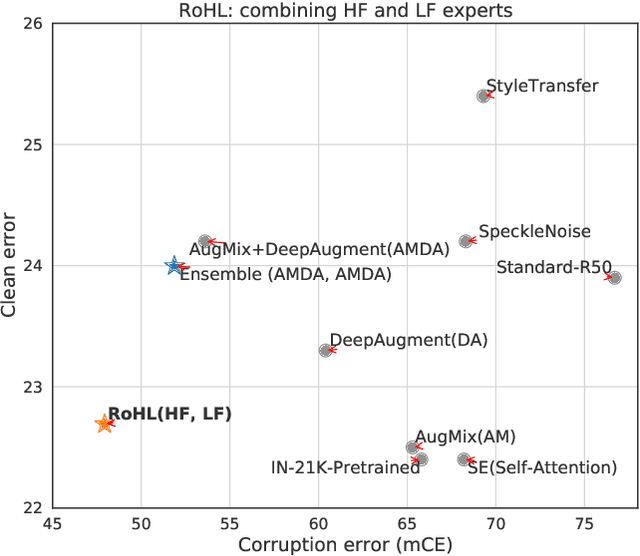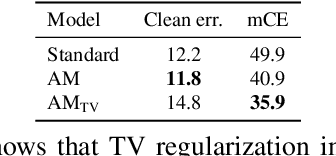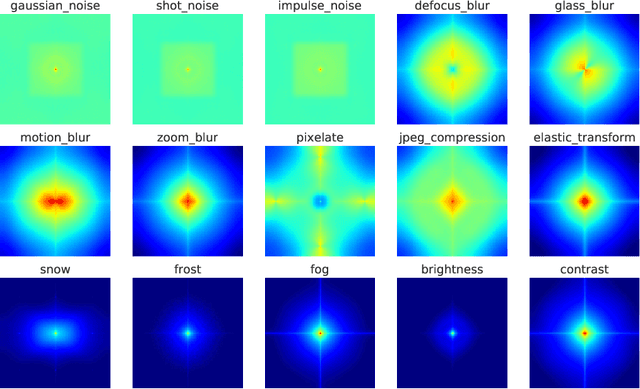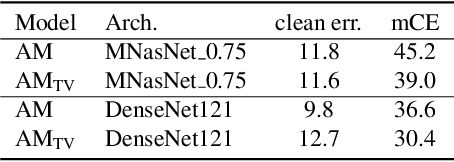Improving robustness against common corruptions with frequency biased models
Paper and Code
Mar 30, 2021



CNNs perform remarkably well when the training and test distributions are i.i.d, but unseen image corruptions can cause a surprisingly large drop in performance. In various real scenarios, unexpected distortions, such as random noise, compression artefacts, or weather distortions are common phenomena. Improving performance on corrupted images must not result in degraded i.i.d performance - a challenge faced by many state-of-the-art robust approaches. Image corruption types have different characteristics in the frequency spectrum and would benefit from a targeted type of data augmentation, which, however, is often unknown during training. In this paper, we introduce a mixture of two expert models specializing in high and low-frequency robustness, respectively. Moreover, we propose a new regularization scheme that minimizes the total variation (TV) of convolution feature-maps to increase high-frequency robustness. The approach improves on corrupted images without degrading in-distribution performance. We demonstrate this on ImageNet-C and also for real-world corruptions on an automotive dataset, both for object classification and object detection.
 Add to Chrome
Add to Chrome Add to Firefox
Add to Firefox Add to Edge
Add to Edge